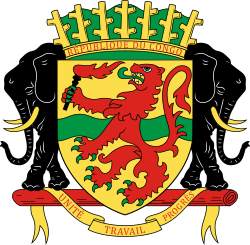 |
|---|
Parliamentary elections were held in the Republic of the Congo on 11 December 1963. They followed a constitutional referendum on 8 December, which approved a constitution that made the country a one-party state. Although it did not come into force until July 1964, the National Movement of the Revolution was the sole party to contest the election, and won all seats. [1] Voter turnout was 91.7%. [2]